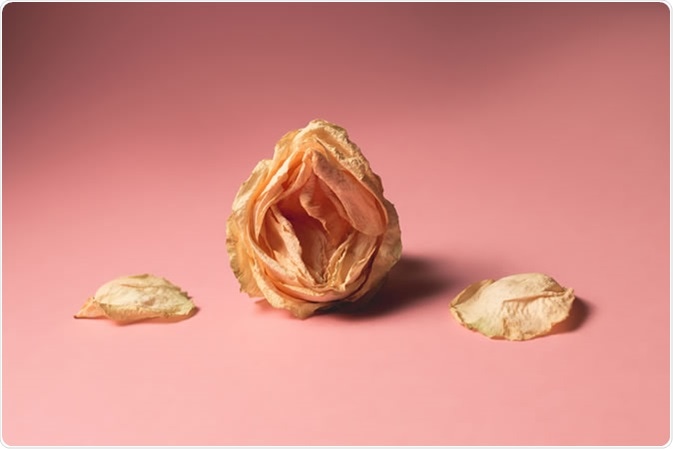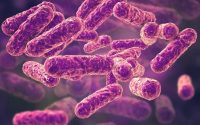Why Do Older Women Lose their Libido (and How to Get it Back)?
Skip to:
- Why do Older Women Have a Reduced Libido?
- Is Reduced Libido a Matter of Concern?
- How to Regain Sexual Desire?

Elderly women generally have a lower sexual desire or libido because of age-related physiological, psychological, and social transition.
Although libido reduces gradually with age in both men and women, women are two to three times more susceptible to such decline.
Why do Older Women Have a Reduced Libido?
A reduction in sexual drive commonly occurs in women in their late 40s or 50s, and it may be associated with menopause-related changes in blood estrogen level.
Women who experience an abrupt menopause due to ovariectomy or chemotherapy generally show a greater reduction in libido than those who experience natural menopause.
A sudden fall in blood levels of estrogen and testosterone due to abrupt menopause may be responsible for this.
In natural menopause, a reduction in estrogen and testosterone levels often leads to thinning of vaginal lining, loss of vaginal elasticity, muscle tone, and lubrication, atrophy of the clitoris and vagina, and reduced sensation.
All these events collectively cause vaginal discomfort, pain in pelvic area, and difficulty penetration, leading to a reduced libido.
Psychological factors like negative social perceptions about age-related physical changes may also significantly affect women’s sexual desire.
Women who stay positive about the aging process and maintain self-confidence can even experience an increased libido. In contrast, women who perceive aging signs as unattractive, poor body image, and loss of feminitiy often suffer from reduced sexual desire or drive.
Emotional intimacy is another important factor that can affect a woman’s libido. Having a partner with erectile dysfunction or unavailability of spousal or intimate partner can significantly affect libido in women.
A study conduced on women over 60 years old has found that about 55% of married women are sexually active compared to 5% of unmarried women. Interestingly, it has been found that sexual satisfaction increases with age in women.
Despite having a low libido, women often experience arousal and orgasm even in their old age.
Age-related deterioration in health can also affect libido in women. For example, women with heart problems have reduced blood supply to sex organs including vagina, leading to lack of lubrication and arousal. Moreover, certain medicines used to treat health conditions, such as high blood pressure, diabetes, depression, and incontinence, can reduce sexual drive in women.
According to a recent study, libido in women can be affected largely due to poor mental and physical health, lack of communication with partner, and an absence of emotional closeness.
The quality and length of sexual communication with partner greatly impact a woman’s sexual desire.
Is Reduced Libido a Matter of Concern?
For many women, a reduce libido does not significantly affect their overall sextual activity and quality of life. However, a chronic or recurrent lack of libido sometimes causes emotional distress, such as anxiety and depression.
A persistent lack of desire, a condition commonly known as hypoactive sexual desire disorder, can bring relationship problems, if not addressed with open sexual communication between partners.
How to Regain Sexual Desire?
The good news is effective interventions are available to get the libido back. Certain strategies that are useful in improving sextual desire in women include:
- Use of lubricants, moisturizer, or low-dose vaginal estrogen for dryness and pain
- Hormonal therapy for reduced libido
- Sex therapy/counselling
- Use of drugs to increase sexual drive
In addition, changing lifestyle can also help improve libido in women. Regular exercise can improve sexual activity by increasing blood flow and improving heart health.
Quitting smoking can also increase blood flow to sex organs and delay the onset of menopause.
Avoiding or limiting alcohol consumption can be beneficial in terms of improving sex reflexes, subsiding hot flashes, and improving sleep quality.
Eating a healthy and well-balanced diet can improve health conditions, such as cardiovascular disorder and diabetes. It is also important to maintain a healthy weight and provide a positive perception about body image.
Practicing yoga and meditation can bring physical and mental relaxation, which is important for sexual performance.
Sources
- Maciel M. 2014. Older Women's Sexual Desire Problems: Biopsychosocial Factors Impacting Them and Barriers to Their Clinical Assessment. BioMed Research International. https://www.ncbi.nlm.nih.gov/pmc/articles/PMC4066710/
- www.sciencedaily.com. 2012. Sexual satisfaction in women increases with age. https://www.sciencedaily.com/releases/2012/01/120103134907.htm
- www.health.harvard.edu. 2017. For women, sexuality changes with age but doesn’t disappear. www.health.harvard.edu/…/for-women-sexuality-changes-with-age-but-doesnt-disappear-201402137035
- www.menopause.org. 2019. Decreased Desire. www.menopause.org/…/decreased-desire
- www.aarp.org. 2017. Older Women More Likely to Lose Interest in Sex. www.aarp.org/…/sexual-desire-declines-with-age-fd.html
Last Updated: Sep 25, 2019

Written by
Dr. Sanchari Sinha Dutta
Dr. Sanchari Sinha Dutta is a science communicator who believes in spreading the power of science in every corner of the world. She has a Bachelor of Science (B.Sc.) degree and a Master's of Science (M.Sc.) in biology and human physiology. Following her Master's degree, Sanchari went on to study a Ph.D. in human physiology. She has authored more than 10 original research articles, all of which have been published in world renowned international journals.
Source: Read Full Article


